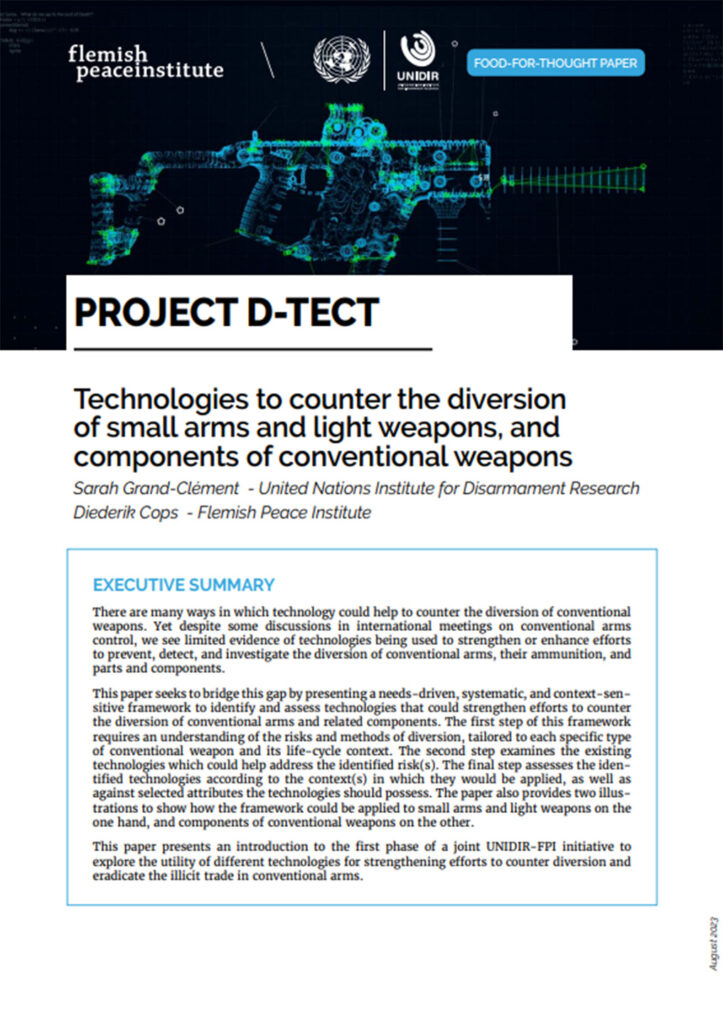There are many ways in which technology could help to counter the diversion of conventional weapons. Yet despite some discussions in international meetings on conventional arms control, we see limited evidence of technologies being used to strengthen or enhance efforts to prevent, detect, and investigate the diversion of conventional arms, their ammunition, and parts and components.
This paper seeks to bridge this gap by presenting a needs-driven, systematic, and context-sensitive framework to identify and assess technologies that could strengthen efforts to counter the diversion of conventional arms and related components.
The first step of this framework requires an understanding of the risks and methods of diversion, tailored to each specific type of conventional weapon and its life-cycle context. The second step examines the existing technologies which could help address the identified risk(s). The final step assesses the identified technologies according to the context(s) in which they would be applied, as well as against selected attributes the technologies should possess.
The paper also provides two illustrations to show how the framework could be applied to small arms and light weapons on the one hand, and components of conventional weapons on the other.
Sponsor Organizations: Germany (Conventional Arms and Ammunition Programme) and Germany, the Netherlands, Switzerland and Microsoft (Security and Technology Programme).
Citation: Sarah Grand-Clément and Diederik Cops (2023) "Project D-TECT: Technologies to Counter the Diversion of Small Arms and Light Weapons, and Components of Conventional Weapons", UNIDIR and the Flemish Peace Institute. https://doi.org/10.37559/CAAP/23/ERC/08
